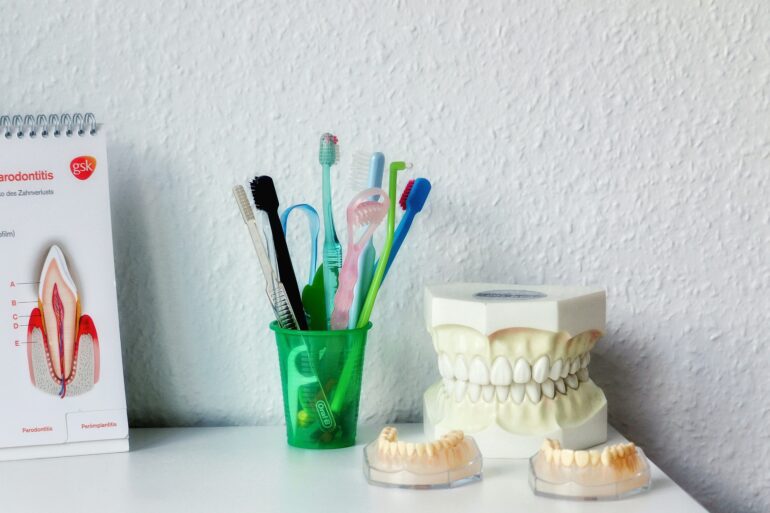TL;DR:
- Dentaly’s recent survey reveals how artificial intelligence (AI) is transforming dentistry and patient care.
- 35% of licensed dentists have adopted AI in their practices, with 77% reporting positive outcomes.
- 81% of US dentists view AI positively, seeing potential for operational task optimization.
- Key AI applications include image analysis (51%), diagnosis (43%), and treatment planning (38%).
- AI benefits encompass efficient workflows (76%), predictive analytics (48%), accurate diagnosis (40%), enhanced treatment planning (35%), and personalized options (20%).
- Privacy, data security, reliability, and cost concerns persist despite AI’s potential.
- Brendan Macdonald highlights AI’s enhancing role while acknowledging its limitations.
- Surveyed dentists foresee incremental improvements (52%) and openness to AI integration.
- Clyde Munro Dental Group’s AI trial showcases enhanced tooth decay prevention and diagnosis.
Main AI News:
In a groundbreaking revelation, Dentaly’s recent survey has cast a spotlight on the transformative influence of artificial intelligence (AI) in the realm of dentistry, redefining patient care standards. Among the surveyed licensed dentists, an astonishing 35% have seamlessly integrated this technological marvel into their practices. More remarkably, an impressive 77% of these early AI adopters attest to the tangible benefits they’ve reaped.
Imparting a significant shift in mindset, a staggering 81% of dentists in the United States have embraced AI applications in dentistry with optimism. Intriguingly, 62% of these forward-thinkers believe that AI has the potential to take over some operational tasks within dental clinics, revolutionizing the traditional landscape. The consensus resonates with the conviction that AI amplifies clinical practice, optimizes workflow efficiency, and elevates patient outcomes.
Intricately dissecting the data, AI’s multifaceted roles emerge prominently. Notably, 51% of AI implementers laud its prowess in image analysis, followed closely by diagnosis at 43% and treatment planning at 38%. This underscores the transformative potential AI brings to diagnosis accuracy and patient treatment strategies.
Dentaly’s report illuminates the paramount advantages of AI in dentistry: a remarkable 76% acknowledge swifter and more effective workflows, while 48% emphasize the predictive analytics shaping patient outcomes. Within the realm of diagnostics, AI wields an impressive 40% boost in accuracy. Furthermore, 35% testify to its role in refining treatment plans, and 20% hail the advent of personalized treatment options as AI’s crowning achievement.
Navigating Challenges and Pioneering the Future
Amidst the revolution AI heralds, challenges loom on the horizon, notably in data security and privacy. Concerns regarding compliance with relevant laws, patient data integrity, and practice confidentiality hold a shared concern among practitioners, accounting for 67% of the apprehensions. Meanwhile, the reliability and precision of AI systems share this top spot, acknowledging the demand for robust, foolproof technology.
A holistic view of concerns underscores ethical considerations at 52%, emphasizing the industry’s ethical responsibility. The perceived cost of implementing AI solutions captures 43% of worries, and potential job displacement registers at 33%. These apprehensions underline the delicate balance between innovation and practicality.
Commenting on AI’s transformative trajectory, Brendan Macdonald, CEO of Digital Smile Design, notes its indispensable role in elevating dental practice. While AI offers a paradigm shift in diagnosis, treatment planning, and streamlining care, it doesn’t supplant the essence of the human touch in dentistry. AI serves as a potent ally, enhancing professionals’ capabilities rather than rendering them obsolete.
Charting the Course Ahead
The future landscape of dentistry stands at a crossroads of incremental progress, according to 52% of respondents. A significant 29% anticipate limited AI impact, while 10% foresee groundbreaking revolutions. Evidently, an air of openness prevails, as 57% of respondents express readiness to embrace AI advancements in their practices. Remarkably, 10% express a strong inclination, and 47% lean towards incorporating AI technologies.
Clyde Munro Dental Group’s pivotal role in Scotland, as the first to embrace AI from Manchester Imaging, serves as a testament to AI’s promising potential. The integration of AI has finely honed the accuracy of early tooth decay prevention and diagnosis, signaling the uncharted avenues AI can explore in reshaping the field of dentistry.
Conclusion:
The comprehensive survey by Dentaly underscores the pivotal role of AI in revolutionizing dentistry. The growing integration of AI-driven tools and strategies is poised to reshape the market landscape, enabling dentists to enhance efficiency, accuracy, and patient outcomes. However, while optimism and openness prevail, addressing data security, reliability, and cost concerns will be imperative to fully harness AI’s potential in the dental industry.

